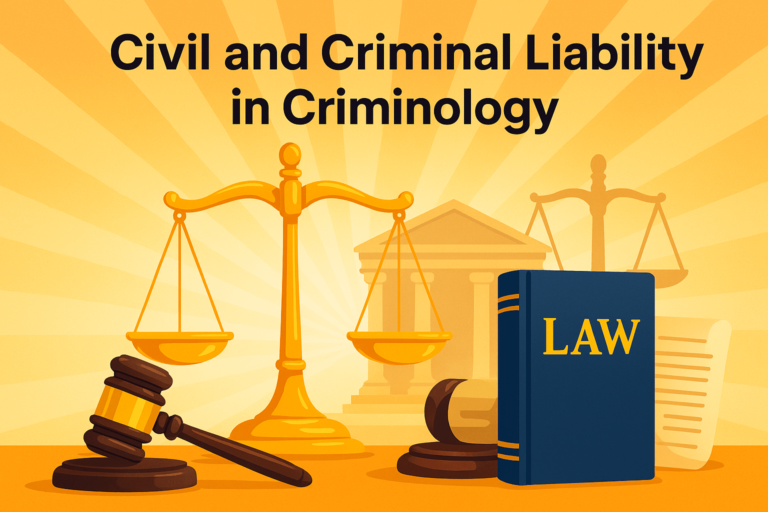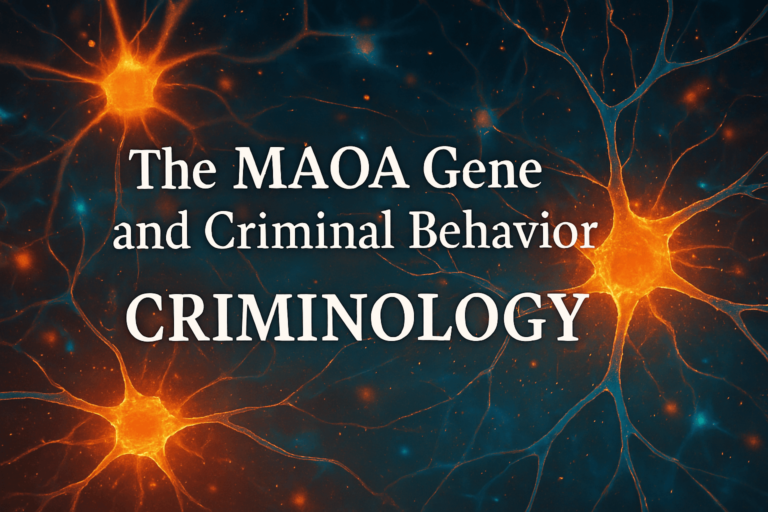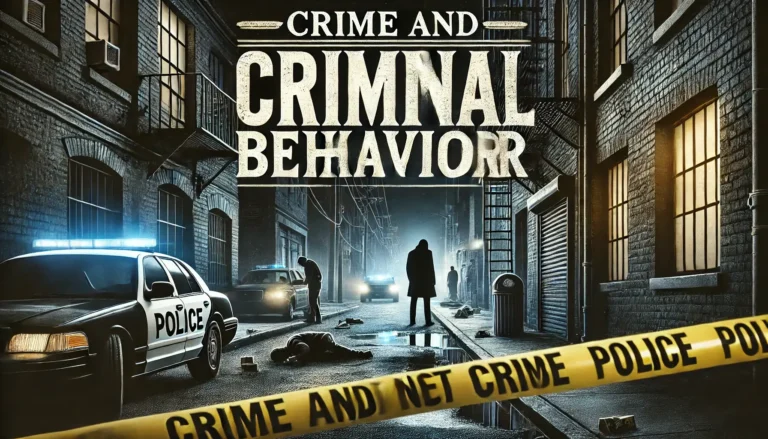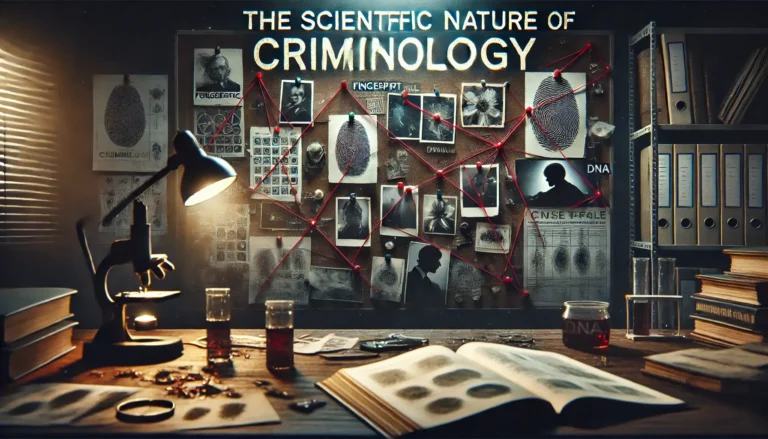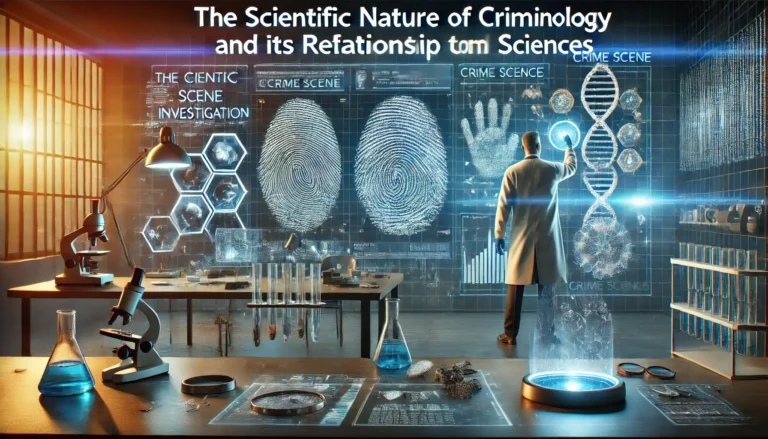Civil and Criminal Liability in Criminology: Complete Guide with Examples and Legal Insights
Introduction Liability, in both civil and criminal contexts, plays a fundamental role in criminology and legal studies. Civil and criminal liability serve distinct functions within the legal system, addressing different types of wrongdoing and enforcing separate consequences. This article provides an in-depth analysis of the concepts, differences, applications, and implications of civil and criminal liability,…

